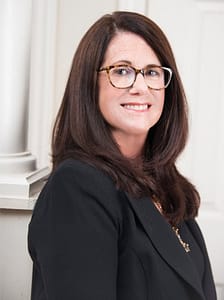Have you seen the YouTube video that was making the rounds a few years ago about a millennial interview? Here it is incase you missed it.
We may all laugh at this as an exaggeration but there are many offices right now who feel frustration with the millennial generation as not having the work ethic that is expected of them. This is often seen as a lack of workplace maturity and can be a source of frustration in an office. On the other hand, there are those very hard-working millennials who have certain skills that others may not have. In the dental industry we need to look at how to mentor millennial team members as well as how we can best suit the needs of millennial patients.
Millennial team members likely grew up in an environment where everyone was applauded, everyone received an award for participating and were told that you could be anything that you wanted to be. It was a stark contrast from the pushing for achievements that many of us received in our formative years. To make up the divide, very often we need to look at mentoring millennial team members to help them gain the maturity that is required in a workplace. You can do this by pairing a perennial (an experienced older team member) with a millennial to provide positive encouragement with learning. Also, the millennial will take cues of how to behave in a workplace scenario.
Very often, you will find that millennial team members will not want to work the longer hours often required in a dental office, the number of nights and weekends may seem daunting. This can be solved by hiring two people to fill one position, it does increase your number of employees but if it improves their satisfaction with the workplace then it may be the right choice for your office. Another solution you may want to look at is, most dental offices don’t offer employee benefits other than dental care, you may decide that it is worth it to offer a lifestyle balance in your office. This might include a monthly, quarterly or yearly stipend for massage, physio, gym memberships, yoga classes and so on. Even if these aren’t your values, you need to be aware off what your team members see as important.
We need to always keep in mind that the average cost of a change in team is approximately ten thousand dollars. Having a constant change over of team members is very difficult for others in the office and is very difficult for patients as well. You may want to consider some incentives to allow team members to feel that they have something to gain with performance goals. It can be very difficult to ask team to grow if they don’t see what is in it for them. Growth in a dental office is always best achieved with performance goals and not just by crossing your fingers. Design your plan for growth with your team feeling that they are a part of the growth and you will be amazed at the difference in results.
Connecting with millennial patients also needs to be designed with their special interests in mind. When discussing treatment with patients have some online links available for them for their patient education. Describing it in the office is good, showing them the procedure on a video in your office is better and then sending them home with some links that you have chosen is the best-case scenario. You have educated them in ways that they can relate to.
You will also want to involve them in any technology that you have in the office, this generation is very technology oriented and they want to know that their chosen dental office is keeping up as well. Your payment options and confirmation options will all need to be very customer oriented and technology based.
Last but not least with millennial patients your social media postings, your website and your Google presence all need to be on point and current for this age group. Their decisions for providers come from your reviews, the ease of movement in your website and even from reviews on Reddit. Your electronic presence has never been more important than now.
Millennial team members and patients are to be celebrated as they are the future success of our practices, we need to mentor and lead them in a way that will ensure both the millennials and our practices reach their potentials.



